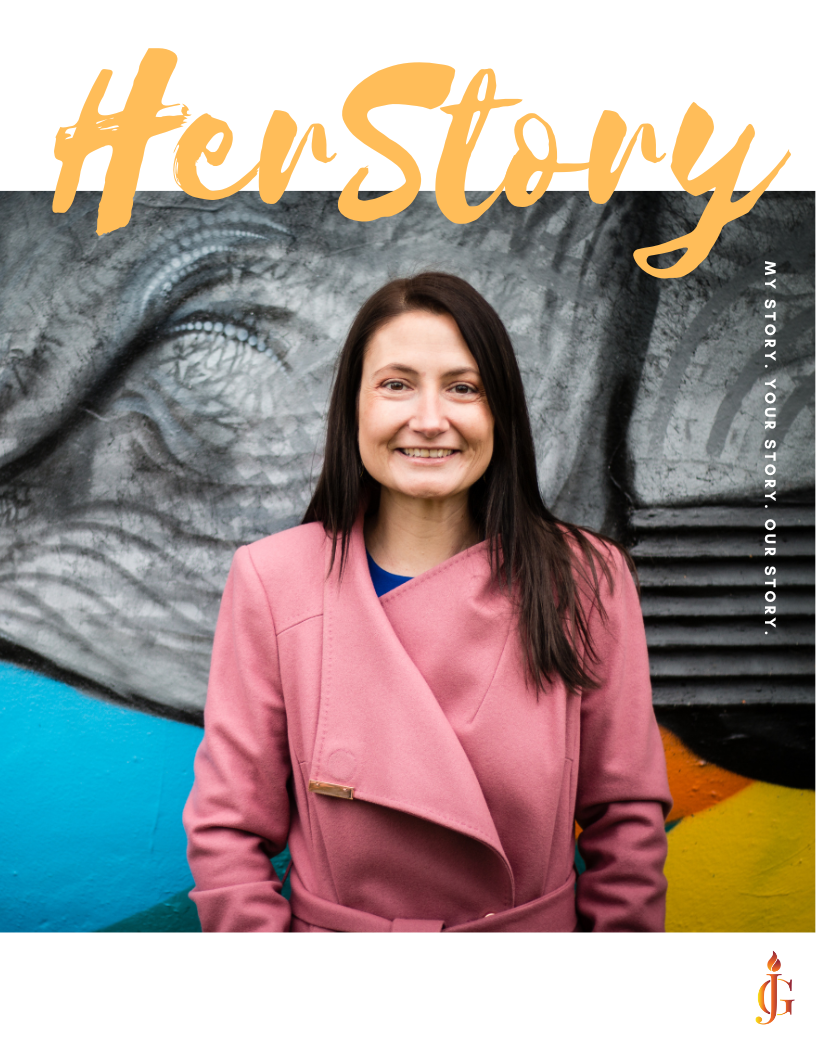
12 May HERStory: Amy Brann
So, I grew up wanting to be a doctor. Ever since I was three, I thought my contribution to the world would be to help make sick people better and have a compassionate experience of being poorly.
But when I was in medical school, I started to realize there was perhaps a different way I could contribute to the world and one that might be a better fit for me. What I was really passionate about was how people’s brains work and how we can help people understand how to use them to work better. How we can live more fulfilling and healthy lives while contributing all that we are capable of.
I left medical school and set up an organization that is dedicated to helping individuals and companies understand how they can unlock their Whole Brain Potential so they can perform at the top levels of what they are capable of without sacrificing their wellbeing or relationships.
Mental health, for us, is something that needs continuous investment. If you neglect it, that’s when it can deteriorate. Working from home has so many different implications. I’d always encourage people to consider any environment they’re in proactively and intentionally. How can you make working from home a huge support to amazing mental and physical wellbeing? For me, I have weights scattered throughout my house, nudging me to pick them up and do a few reps throughout the day. A few minutes that pick me up physically and mentally.
Another key thing, something I think is completely neglected, on the whole, is to realize what we are doing that is positively impacting us. It is an area we teach a lot of organizations how to capitalize on because it has such major impacts on wellbeing. You can think of it as an ‘Expectation Explorer.’
When I pet my dog, I remind myself that this contributes to my positive well-being. When I take a few deep breaths in, I know the science around how this affects my stress levels. When I do the washing up and focus on how grateful I am to have food and mealtimes to clean up after…I know what impact that has on my well-being.
My nine-year-old daughter sums up how emotions can feel really well. She says, ‘Mum, I can’t just not feel something. I can’t just change how I feel.’ And that is a really common experience. But the reality is that over time, with effort, attention and strategic behaviors, we can rewire our emotional responses to be helpful to us. So, for me, in the moment, we need to accept our emotions. Accept that we will feel this full spectrum of responses that, at times, may be inconvenient or uncomfortable. Be kind to ourselves at those times. Show self-love and compassion to others. But we also need to be investing in a lifelong quest to partner with our brains to recondition our emotions to help us tap into who we have the potential to be.
Relationships add color to our lives. They invite richness. For sure, they come with challenges too. For all the highs of emotion, the laughter, and the deep connections, there is also the pain and sadness. But they help us grow. Just like our mental health, they need nurturing.
Perhaps all things worth wanting require us to invest in them? I think one of the best things we can do to strengthen our relationships is to get alternative perspectives. Connect with people who can openly and honestly help us see things differently. If we spend a lot of time with certain people, we can fall into patterns of thoughts. Sometimes people may agree with us to appear supportive when we may really benefit from some challenge. So, in order to keep relationships healthy, get some different perspectives on your behaviors and mindsets from outside those key relationships. An M.O.T. almost to help you see any tweaks that could be made.
My message to women who are seeking to contribute to the world and be these shining lights to those around them (their families, friends, local communities) is to play the long game. Consider who you want to become and be taking proactive steps each day to move closer to that. There can be a lot of external pressures across all areas of our life, and we need to protect ourselves against them. Stay clean and focused on what is most important to us and shape our environment and behaviors to support us in pursuing and enjoying that.
About Amy:
Amy is the Director of Synaptic Potential, the international team of thought leaders applying cutting-edge science to organizations. Amy is the author of three books: ‘Make Your Brain Work,’ ‘Neuroscience for Coaches’ & ‘Engaged: The neuroscience behind creating productive people in successful organizations.’ She is also an associate at Cambridge University’s Moller Institute and visiting lecturer at Manchester Metropolitan University, teaching the neuroscience of leadership on the Master of Sports Directorship program.

No Comments